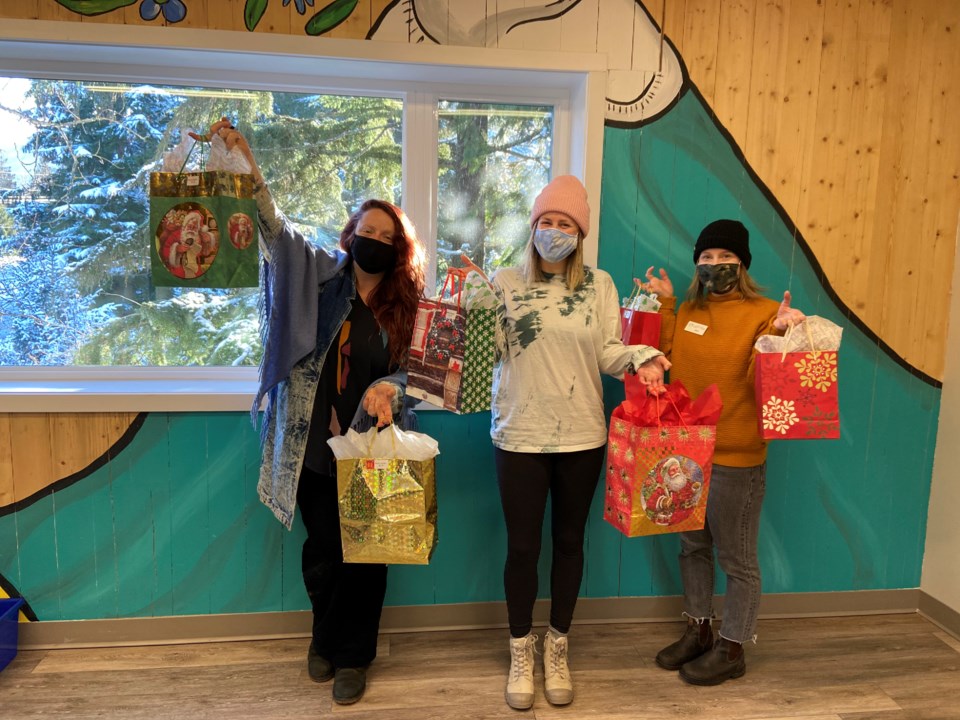At the outset of the COVID-19 pandemic, the Resort Municipality of Whistler (RMOW) made the unique decision to redirect all of its Community Enrichment Program funding—usually spread amongst local sports, community and social services groups—strictly to the community services that need it most.
Hearing the recipients report back on their work this year at the Dec. 15 meeting, it’s easy to see why that was necessary.
Take the Whistler Community Services Society (WCSS) society, for example, which saw unprecedented numbers of Whistlerites accessing its services in 2020.
The WCSS received $31,045 from the RMOW in 2020 to continue running its programs and counselling services.
“In early spring, our outreach services experienced a surge in client meetings and connections, and at that time over 57 per cent of the people that we saw identified as being in a place of crisis,” said executive director Jackie Dickinson in a presentation to council.
“That’s one in every two people.”
The surge was directly linked to the initial stressors of the pandemic, which were defined by uncertainty, job loss, anxiety and economic challenges, Dickinson said.
In the spring, the Canadian Mental Health Association reported that the national average of individuals who are having suicidal thoughts or otherwise struggling with their mental health rose from 2.5 per cent to six per cent, Dickinson said.
When the survey was repeated in October, that number rose to 10 per cent.
And as the pandemic drags on, the numbers keep rising at WCSS.
“In October, our frontline outreach team had the most one-to-one meetings they’ve had throughout the entire pandemic. They served over 740 client meetings in just one month,” Dickinson said.
“They are on track this year to have over 5,000 one-on-one clients. That, to put it in perspective, is a 50-per-cent increase from two years ago when we moved into our new location.”
The municipal funding was especially helpful for WCSS this year, as the pandemic dried up its traditional revenue streams at the Re-Build-It and Re-Use-It centres, Dickinson noted.
The RMOW also gave $20,000 to the Howe Sound Women’s Centre Society (HSWCS), which used the money to operate a drop-in centre in Whistler and to help pay for counsellor wages and benefits.
“With your help this past year we were able to offer an additional seven counselling hours per week, which equates to an additional 12 children and youth that were able to access our counselling services,” said programs director Shana Murray.
“This has allowed us to be able to meet the growing demands of our free-of-charge, children, youth and family counselling program.”
Another national trend throughout the pandemic has been an increase in domestic violence reports—a trend that did not pass over the Sea to Sky.
“We do know that there’s been an increase in domestic violence calls within the Sea to Sky that have come in to the RCMP,” said HSWCS interim community program manager Allison Gilchrist, adding that the organization saw increased demand for its multicultural outreach and homelessness prevention program, which provides rental subsidies for women and children leaving abuse.
Unfortunately, Whistler doesn’t have a safe home for women and children in those situations at the moment; instead, they have to go to Pemberton.
“It’s a smaller facility, so we don’t have the capacity out there to take on more than one family at a time,” Gilchrist said, adding that in 2018 and 2019, about 47 per cent of calls for the safe home were from Whistler.
“Once we’re full there, it’s down to Squamish, which is pretty difficult as far as if you have children going to school up here, even work, or no transport. So that is a big barrier for women in leaving,” Gilchrist said.
“So one day, hopefully, it would be nice to have a safe house [in Whistler].”
For Whistler-based charity Zero Ceiling, $13,000 in unrestricted funding was a godsend.
“It was a time of incredible uncertainty, and that was an absolute lightning strike for me, in a good way, and for our organization,” said co-executive director Chris Wrightson.
“It just gave me so much faith, because it was such a proactive and progressive action to provide the funding as unrestricted at that moment.”
Having no restrictions on the funds this year gave Zero Ceiling the flexibility needed to support its staff, “who’ve just been incredible working to meet the needs of 20 young adults in our community,” Wrightson said.
“We were able to increase our staffing, the hours that our current staff had, and then we’ve also hired two new overnight support workers who are both Indigenous and are doing an incredible job.”
Wrightson challenged the municipality to go one step further with its community group funding in future years, and commit to multi-year grants for organizations.
“Multi-year operating funding is when you see every dollar go further, because we can leverage that funding commitment for additional funding and it means we can plan ahead,” she said.
“The RMOW has a long-established, trusting relationship with each of the organizations who are presenting to you tonight, and I challenge you to consider this as you make plans for the Community Enrichment Program in the future.”
Lastly, at the Sea to Sky Community Services Society (SSCSS), a grant of $12,000 was used to bolster programming, along with a further $25,000 for the Pemberton Food Bank, which has also seen an intense increase in demand.
“The Food Bank has seen a sustained increase of three-and-a-half times the pre-pandemic access. We are currently serving an average of over 900 individuals a month,” said Julie Van Eesteren, manager of children’s services with SSCSS.
“The funding from the RMOW was used to purchase food to meet this increased demand.”




